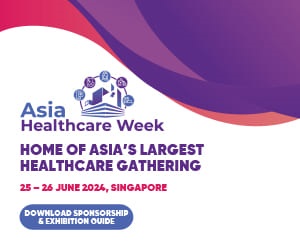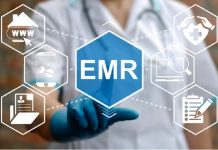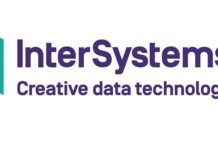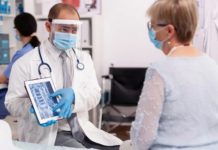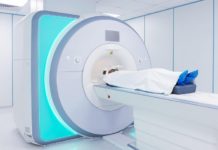MERS International’s software, developed at the International Center for Health Outcomes and Innovation Research (InCHOIR), Columbia University helps hospital staff systematically record, investigate, analyze, classify and find the root causes of actual and near-miss events, such as falls, medication errors, and ventilator-associated pneumonias. The system, known as MERS (Medical Event Reporting System) will now be deployed by GE Healthcare specialists trained to use the data as part of Lean, Six Sigma™ and other methodologies to drive process and cultural changes that may help to prevent such events from taking place.
“GE’s venture with MERS International puts an extremely powerful patient-safety tool in the hands of people trained to apply it for the greatest benefit,” said Jeff Terry, General Manager for Clinical Excellence with GE Healthcare. “It enables hospitals to move from monitoring and reporting adverse events to making process changes that actually help to prevent such events. It will help hospitals focus on patient safety more than ever before and drive more results. The MERS and GE combination will help hospital staffs hard-wire a real focus on improving patient safety “
With this solution, GE and MERS will help hospitals respond to that challenge and address other patient safety initiatives, such as the Institute for Healthcare Improvement’s 5 Million Lives Campaign.
Mary Cooper, who worked with MERS while at New York Presbyterian Hospital and is now Chief Quality Officer with LifeSpan in Providence, R.I., says, “a key benefit of the system is the reporting of all types of events. Most states already require reporting of events that cause harm, but that alone doesn’t show you the full spectrum of what is happening out in the trenches. This solution helps hospitals look for patterns and trends. For example, instead of saying, ‘We have a problem with falls across our 350-bed institution,’ a hospital now can say, ‘We have a high incidence of falls on Floor 4 West between 2 and 4 p.m. on days with heavy orthopedic caseload.’”
“Using MERS, we started reporting all kinds of near miss and adverse events. An advantage of the system was that physicians, frontline staff and management alike could use it. Everyone was able to review the data and the issues that were identified, so that they could fix problems before they caused harm to a patient,” said Cooper.
One hospital used MERS data to identify a problem in no-harm events involving intravenous (IV) infusion pumps. The discovery led to a procedural change that corrected the problem before any patient was harmed.
“The capture and analysis of near-miss and no-harm events makes patient safety event reporting more proactive than reactive,” says Harold S. Kaplan, M.D., Professor of Clinical Pathology at Columbia University Medical Center. “MERS enables the ready conversion of near-miss data to useful information and staff feedback, helping to further an environment of staff mindfulness and engagement in patient safety.”
Barbara Rabin Fastman, an early collaborator in the development of MERS at InCHOIR, Columbia University, observes that MERS, which employs web-based event reporting, is superior to systems that are paper-based or use simple spreadsheets.
Using such data, GE Healthcare can call upon its ability to drive process improvements that help to reduce the incidence of events and improve outcomes for patients. GE specialists can apply a toolkit of Lean, Six Sigma™, and its own Change Acceleration Process™ and Work-Out™ facilitation tools to help staff achieve measurable and lasting process and culture changes.
MERS users include large urban academic medical centers, community hospitals, pediatric and psychiatric facilities, as well as ambulatory clinics. Features of MERS include a proprietary taxonomy for cataloguing events; built-in reporting capability for MedWatch FDA, and state reports; online causal tree building analysis using World Health Organization causal codes, and a HAWK™ system for identifying similar events in the database. It provides a central database of reports for process improvement and solution sharing across facilities.
About MERS
MERS International, with headquarters in the Netherlands and a New York-based U.S. subsidiary, is dedicated to improving patient care through innovative, information-based patient-safety solutions. MERS International is the exclusive licensee of a robust and proven medical event reporting system (MERS) developed at InCHOIR, Columbia University with support from the Agency for Healthcare Research and Quality (AHRQ). MERS has been installed at more than 30 ambulatory clinics and acute care hospitals to-date. Through the systemic collection, investigation, classification, interpretation and monitoring of information about near miss and actual events occurring anywhere in a hospital or healthcare facility, MERS empowers healthcare professionals and organizations to improve patient safety and quality of care.
About GE Healthcare
GE Healthcare provides transformational medical technologies and services that are shaping a new age of patient care. Our expertise in medical imaging and information technologies, medical diagnostics, patient monitoring systems, performance improvement, drug discovery, and biopharmaceutical manufacturing technologies is helping clinicians around the world re-imagine new ways to predict, diagnose, inform, treat and monitor disease, so patients can live their lives to the fullest.
GE Healthcare's broad range of products and services enable healthcare providers to better diagnose and treat cancer, heart disease, neurological diseases and other conditions earlier. Our vision for the future is to enable a new "early health" model of care focused on earlier diagnosis, pre-symptomatic disease detection and disease prevention. Headquartered in the United Kingdom, GE Healthcare is a $17 billion unit of General Electric Company (NYSE: GE). Worldwide, GE Healthcare employs more than 46,000 people committed to serving healthcare professionals and their patients in more than 100 countries. For more information about GE Healthcare, visit our website at http://www.gehealthcare.com .






